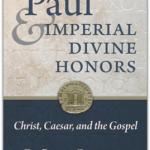 I have begun reading the new book Adam and the Genome by Dennis Venema and Scot McKnight. This book provides an important and novel contribution to the discussion of science and Christian faith. The book joins a number of other excellent books combining scientific and theological expertise. Science, Creation and the Bible: Reconciling Rival Theories of Origins by Richard Carlson and Tremper Longman III combines the expertise of a physicist (Carlson) and an Old Testament scholar (Longman) to address questions of origins. Longman contribution to the book sheds important light on the genre and context of the Old Testament texts on origins. God and the Cosmos: Divine Activity in Space, Time and History by theologian Harry Lee Poe and chemist Jimmy H. Davis looks at God’s interaction with this world, and the influence of science on the ways we think about God’s action. I’ve read, reviewed and recommend both of these books.
I have begun reading the new book Adam and the Genome by Dennis Venema and Scot McKnight. This book provides an important and novel contribution to the discussion of science and Christian faith. The book joins a number of other excellent books combining scientific and theological expertise. Science, Creation and the Bible: Reconciling Rival Theories of Origins by Richard Carlson and Tremper Longman III combines the expertise of a physicist (Carlson) and an Old Testament scholar (Longman) to address questions of origins. Longman contribution to the book sheds important light on the genre and context of the Old Testament texts on origins. God and the Cosmos: Divine Activity in Space, Time and History by theologian Harry Lee Poe and chemist Jimmy H. Davis looks at God’s interaction with this world, and the influence of science on the ways we think about God’s action. I’ve read, reviewed and recommend both of these books.
For many Christians, however, the question of divine action, important as it is to the theologian, does not impact day-to-day faith. The age of the earth is a non-question, although many books, including Science, Creation and the Bible, provide important new insights. The real sticking point of evolution (and even the age of the earth) comes down to the nature of human kind as the image of God, followed by Adam and the fall. The important scientific questions revolve around evolution and human evolution in particular and on the New Testament importance of Adam as the first man and the original sinner. Adam and the Genome targets these important questions. Dennis is a professor of biology at Trinity Western University. He is an evolutionary biologist and a Christian. Scot McKnight (known, of course, to this audience) is a New Testament scholar and theologian. Together they have given us a thought-provoking book to start a journey through the question. I will be digging into the book and highlighting important points and questions over the next … however long it takes. If interested, pick up a copy, read along, and join the conversation.
Defining Theory. In the first four chapters of the book Dennis tells something of his story and presents an excellent introduction to the genetic evidence for human evolution. Near the beginning of the first chapter he defines the scientific understanding of “theory.” Dennis found biology dreadfully boring in high school and his early college years. Biology, by all appearances, involved memorizing a large number of loosely related facts. This changed as he dug into research and began to understand the underlying themes and principles – the theories.
In science, a theory is and explanatory framework for why the facts are the way they are. Theories are not developed overnight – on the contrary, they are the product of a long process of making observations, forming hypotheses, and testing those hypotheses with experiments. (p. 3)
A scientific theory … starts with a guess of sorts – perhaps an educated guess, based on prior observations. It looks to the available facts and asks why the facts are the way they are. The result is a hypothesis – the technical term for “educated guess.” A scientist can use that hypothesis to form a prediction: if this is why things are the way they are, then such and such should be the case. Then an experiment can be set up to test the hypothesis. If the hypothesis is not supported, a scientist will reject the hypothesis. If the prediction is supported by the experiment, the scientist will fail to reject the hypothesis. (p. 4)
If the hypothesis is supported further experiments will be proposed, designed, and carried out to test and further refine the hypothesis. Eventually the hypothesis (or collection of hypotheses) have stood the test long enough and have enough explanatory power to be labeled a theory.
Good theories, then, are close approximations of how the natural world actually works. Scientists don’t ever fully “accept” them as “true” or “proven,” but many theories in science are so well established that it is highly unlikely that new evidence will substantially modify them. The chromosomal theory of inheritance and the germ theory of disease are examples of such theories: the evidence supporting them is huge, and every new technology that scientists have developed to study either one continues to support them – though they have been revised and improved in the process. (p. 4)
In my area of science, the quantum revolution came about because there were facts that didn’t support the popular theories. Newtonian mechanics and Maxwell’s equations were not enough – sending scientists back to the drawing board looking for the explanations. Few today doubt the reality of atoms and molecules or the laws of quantum mechanics that allow us to explain their structures and properties. When I teach, the goal is not to present students with a litany of facts they regurgitate on the exam (an use in subsequent courses). The goal is to teach them the underlying theoretical framework that makes sense of the facts. It is unimportant to memorize the details of the periodic table – it is far more important (and useful) to understand how to derive it, what the general trends are, and why they exists. Fundamental to chemistry are quantum theory and entropy (statistical mechanics). Evolution is a well attested theory that sits on a supporting framework of chemical and physical theories. Details are being revised constantly, but this is to be expected – it is part of the process.
The fickle finger of science? Many non-scientists have the impression that scientific theories are constantly changing. Several years ago Dr. Mohler noted in a speech at the Ligonier Ministries 2010 National Conference:
The assured results of modern science. There is so much that is packed in that mental category, that intellectual claim. Just remember first of all that science has changed and has gone through many transformations. The assured results of modern science today may very well not be the assured results of modern science tomorrow. And, I can promise you, are not the assured results of science yesterday.
Although there are theories that are incredibly well supported, an honest scientist is always open to the possibility that new evidence with force a revision or rethinking. The “assured results” will be changed as necessary. But this doesn’t mean that science is fickle, rather that it (or more accurately we) are constrained by reality. There are several important points.
(1) Science is accumulative. Changes in “assured results” are not often profound unless one retreats to the pre-scientific era. There is a definite direction to scientific discovery as there is a direction to the passage of time. Science builds and grows on the foundation of those who came before. Changes occur with new realms of observation and experience. Dennis makes reference to “every new technology” for a reason. Revisions to current ideas, hypotheses and theories are generally forced by new capabilities – measurements we could never perform before. Much of my work as an experimental physical chemist involves performing experiments never before possible, with equipment that is new and more powerful than anything that came before, to test hypotheses and uncover new or poorly understood phenomena.
(2) Science is a community exercise and a community conversation leading to community consensus. We attribute theories to individuals like Newton, Einstein, and Darwin, and they had important novel insights that deserve recognition. However, they stood on the shoulders of those who came before, and their theories are and have been refined by contemporaries and by those who followed. Our current understanding of evolution retains important novel insights of Darwin, but is far deeper and more persuasive than anything he ever envisioned. As scientists we are always testing, refining, and questioning our theories and hypotheses. The Large Hadron Collider at Cern was built to test a hypothesis and to look for cracks in the standard model that might point to an even larger reality.
(3) Scientists share some of the blame for public misconceptions. Dennis notes:
We’ve all read headlines about scientific discoveries that “overturn previous theories” and “change everything we thought we knew.” The truth is, these headlines are misleading and often more the result of journalists looking for a catchy headline rather than accurately representing new scientific finding. Often, the scientists themselves are eager to portray their work as novel and exciting, and so aid and abet the journalists. “Incremental advancement to a large body of prior knowledge!” just doesn’t cell papers the same way. (p. 5)
Nor does it gain fame for the scientist. But all the blame does not lay at the feet of the scientists. Unfortunately popular “science” on a wide variety of topics, especially related to diet, exercise, and health, often feed the fire with poorly conducted studies uncritically received. Most peer reviewed science makes a boring read, with caveats, statistics, and qualifications. Dennis provides an interesting example here (get the book and read it.)
We’ll dig further into the book, and perhaps get to evolution, in the next post.
How do you understand the word “theory?”
Is science fickle?
How much trust do you place in scientists and their conclusions?
If you wish to contact me directly you may do so at rjs4mail[at]att.net
If interested you can subscribe to a full text feed of my posts at Musings on Science and Theology.















